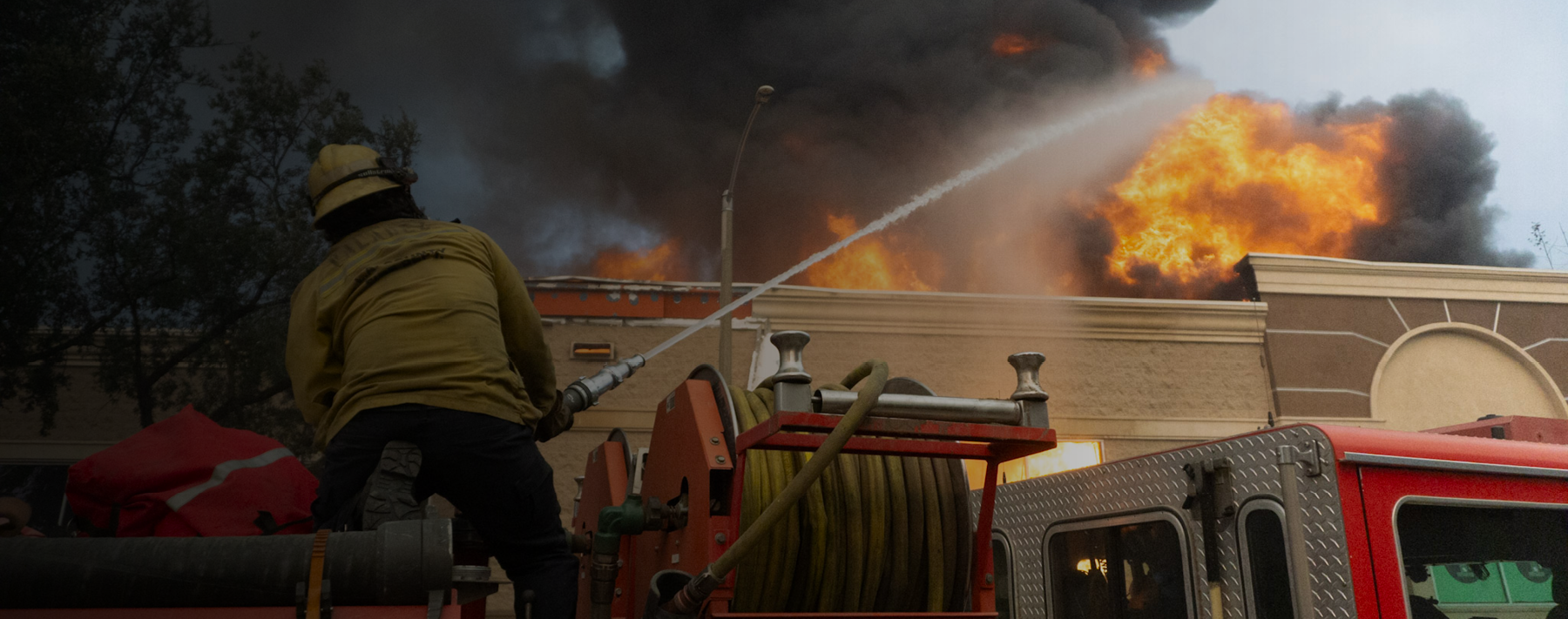Company officers: The middle managers of the fire service. The ones who enforce policies and procedures. The ones who play an integral role in setting culture and expectations in the station. The ones who hear the complaints and see the problems firsthand. The ones who sometimes feel unprepared and out of control. Managing the fire scene is what you’ve been trained for, but managing the people under your command can be an unexpected challenge.
The company officer’s dilemma, as defined by Deputy Chief Billy Goldfeder (Loveland-Symmes Fire Department) and Dr. Ed Sherman, is the seemingly all-or-nothing choice between being a people person or being a department person. “Do I represent management? Do I represent and take care of the crew?” Chief Goldfeder presents the question. Ultimately, the answer is the most challenging one— you must be both. In a recent webinar, “The Company Officer’s Dilemma: Strategies for Achieving Department Goals While Also Meeting Member Needs,” Chief Goldfeder and Dr. Sherman discuss what it means to be a company officer today, and how to approach some of the more challenging “people problems” of the job.
What to Do?
The company officer is in the first position of intervention when a problem arises—a company officer’s initial reaction can determine the outcome of the situation. As Dr. Sherman explains, “Part of our DNA is action. We feel we always have to have the answer and act quickly.” But when company officers have time to think (or “discretionary time,” as Gordon Graham would say), it makes sense to take a beat and consider next steps. Except when you’re responding to an emergency scene, there is almost always time to think before you act. A good rule of thumb: Before you do, you should think.
But eventually you come back around to the inevitable question: What to do and what not to do? Ultimately, what you should do and what you can do are one and the same. As Chief Goldfeder explains, “Do what you’re qualified to do; do what you’re certified to do. And with anything else, you yield to the expert.” Be aware of what resources are available to you within your department and rely on them. When something is out of your range of expertise, get help from the experts: HR, your department’s EAP, a supervisor, your chief or anyone else who has the training, experience and ability to speak into the issue at hand. Some problems are simply outside the scope of what you know and can do—do not be too prideful to ask for help.
So first, company officers should not do things they aren’t qualified for. But what should you do? It’s important to balance the department’s needs with the needs of your people; it’s your job to represent the interests of both. Understand there is work that needs to be done and holding people accountable is essential to good leadership. Ensuring the department functions as it should is part of the job. On the flip side, recognize that the work is accomplished by those under your command. Personnel who are supported and well cared-for will perform their jobs better. Company officers must understand that, when it comes down to being a “department person” or a “people person,” the job’s responsibilities are two sides of the same coin. Everyone is here to serve the community and do the job well, but you must do so within the confines of your department’s structure.
What to Say?
Unsurprisingly, the role of a company officer is marked and dramatically impacted by communication. Company officers are uniquely positioned to communicate in both directions, to superiors and subordinates. The level, quality and clarity of your communication are all critical components to success. While we understand that communication largely occurs organically at the company officer level, that doesn’t mean it shouldn’t be intentional. “If things are unspoken, if people think they are not included, if they think their input doesn’t matter, they become disenfranchised,” Dr. Sherman explains. “And when they become disenfranchised, they’re less likely to be good, active, loyal employees. But the reverse is also true.”
“I have felt for years that the greatest position we have in this job, the most enjoyable position we have in this job, yet the most risky and dangerous job we have, is the company officer. Because that’s where the rubber meets the road.”
Bring your people into the conversation; be open, receptive and responsive to their questions and concerns. Remember: You can always bring in support from HR, leadership, your agency’s peer support team or elsewhere to help deal with the questions and concerns of your people. Dr. Sherman concludes, “Build bridges. It is inevitable that we’ll encounter people we don’t see eye to eye with and all I can say is, build bridges and try to promote that communication.”
You also have the opportunity to communicate feedback to your superiors—provide insight into what it’s like on the ground, the challenges you face and the input of your personnel. While sharing concerns with department leadership is part of the job, you must ultimately remember that you still have the responsibility to ensure policies, training and other directives from the top are carried out under your command—even if they’re unpopular. Remember, “it’s our job,” Dr. Sherman explains. “We get to voice our concerns, but now it’s time to carry it forward.”
Managing Effectively
As company officers, why do you do the things you do? Hopefully, you do what you’re trained, qualified and certified to do. Hopefully, when you need support on something outside your wheelhouse, you seek it out. And hopefully, you have learned how to communicate well from those who trained you and led you throughout your career in the fire service. Everything comes back to organizational culture: We’re most likely to replicate and repeat the behavior we’ve seen. Company officers have an opportunity to shape the culture of their station and their shift. Ask the question, “Is what I’ve seen done producing the best outcomes?” If not, determine what you can do differently.
“I have felt for years that the greatest position we have in this job, the most enjoyable position we have in this job, yet the most risky and dangerous job we have, is the company officer. Because that’s where the rubber meets the road,” Chief Goldfeder says. The responsibility is great and requires dedication, not only to excel at your responsibilities, but to bring in help when you are not the expert.
To learn more, watch the on-demand webinar, “The Company Officer’s Dilemma: Strategies for Achieving Department Goals While Also Supporting Member Needs,” with Chief Goldfeder and Dr. Sherman and register for part two of the conversation.



